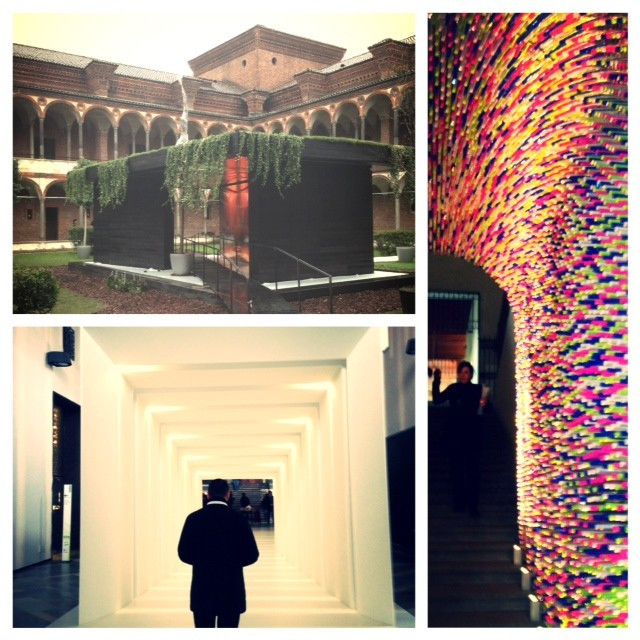Milan Focuses on Design and Manufacturing For Economic Growth

The city of Milan is focusing on design, architecture and related industries, in collaboration with a influential think tank Be Open, in order to reinvigorate economic growth.
Speaking at Milan Design Week, the city's head of economic development said that as Italy's economic landscape endures more turbulent times, Milan has to reassess how it could navigate to more positive economic territory.
"As you can imagine for the City of Milan, this is an important week, not only on an international level, but also for where we are on a city and country level, because of the economic difficulties," says Cristina Tajani, councillor for economic development, higher education and research at the City of Milan.
"Any time the market is tough for companies, we are under obligation to investigate the value and recipe of our city's and country's success, in the past, and what made us competitive in the golden times," she adds.
Milan has an economy that is so large it is almost the size of Austria's, with a GDP that ranks as the fourth largest in Europe. Not only is it one of the main financial and business districts in the European Union, it is also considered one of the fashion capitals of the world and has a large industrial production area near the city.
At Milan Design Week 2013, the creative think tank Be Open, led by Russia's richest woman Elena Baturina, showcased a number of designers and architects, such as Christophe Pillet, through high-end hybrid installations that bring together a number of creative industries, which will also impact more traditional sectors such as manufacturing, production and export through creation.
"We have found that the recipe for the City's success in the past is design, manufacturing and production," says Tanjani.
"In the past, we matched creative knowledge, manufacturing and craft capabilities, which is the reason for the invest-able nature of designers. This will be the key to our success and to update our economic model in current times. The City of Milan is certainly willing to try [and home in on these sectors] in order to tackle international competition, as this is one of the most urgent priorities today."
Be Open's founder Baturina adds that the showcasing of new installations and design, not only catalyses the industry but it is bringing more awareness to key sectors on an international level.
Other prominent speakers in the architecture and design also vehemently voiced the importance of these industries for the growth of major cities, such as Milan, and therefore the country overall.
"Although I am Italian and have many operations in Italy, I have lived in Paris for six years. But I can certainly say that foreigners do complain and may discuss and comment about the political situation, organisational ability or even our inability to network but nobody ever objects to our excellence in fashion and design industries," says Ernesto Mauri, CEO at publishing group Mondadori.
"This has made me proud to be Italian and hopefully this will lead the country to better times," he adds.
Don't forget to check out the website for more on-the-ground written and video coverage in the City of Milan with IBTimes UK.
© Copyright IBTimes 2025. All rights reserved.




















